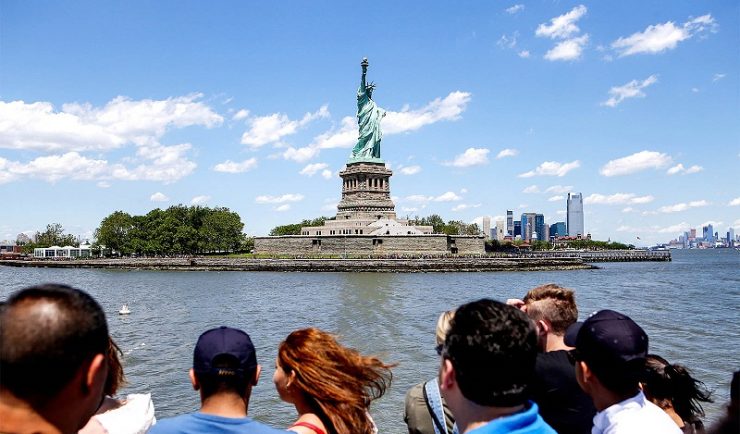THE UNITED States will be implementing a pilot program that will require tourists and business visa applicants to pay a deposit of up to US$15,000 (approximately IDR245 million) to enter the country.
This regulation is intended to apply to individuals from countries with a high visa overstay rate. The visa plan was revealed after Trump’s proposed White House interior design choices were examined.
During this year-long trial period, business and tourist visa applicants from certain countries will be required to pay a deposit of US$10,000 (approximately IDR163 million) per adult and US$5,000 (approximately IDR82 million) for children. This deposit will be refunded at the conclusion of the trip, provided that the visa requirements are met.
Travelers from countries with inadequate screening and verification data may also be impacted, as detailed in a notice published on the Federal Register website on Monday, August 4, 2025.
The publication, cited by Mirror.co.uk, stated that foreign nationals applying for visas as temporary visitors for business or leisure and who are citizens of countries identified by the department as having high visa overstay rates could be subject to this pilot program.
The specific countries whose citizens will be subject to this pilot program will be announced when it is implemented. This regulation does not apply to travelers from countries participating in the Visa Waiver Program.
According to the notice, the pilot program is set to commence within 15 days of its official publication. A similar six-month visa bond pilot scheme was set to launch in 2020, during the final term of President Donald Trump. However, the notice stated that the launch was prevented by the COVD-19 pandemic and the resulting decline in international travel. The Department did not implement the pilot program. As a result, it did not provide any data on the feasibility of full implementation.
Many of the countries targeted by Trump’s travel ban also have high visa overstay rates, including Chad, Eritrea, Haiti, Myanmar, and Yemen. Several African countries, including Burundi, Djibouti, and Togo, also have high overstay rates, according to U.S. Customs and Border Protection data from fiscal year 2023.
In addition to these fees, travelers will also be required to travel through specific U.S. airports, which have not yet been announced, according to USA Today. [sources/photo special]
















